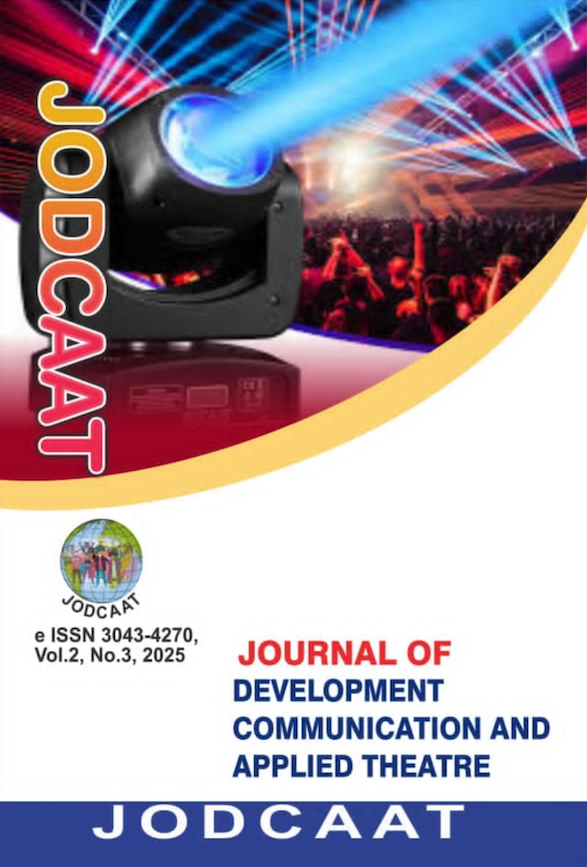UWEMEDIMO ATAKPO'S TREATMENT OF DECENTERED DEIFICATION AND INDETERMINATE RELIGIOSITYAMONG THE IBIBIO IN EDISUA
Résumé
Professing one God, yet genuflecting on the altars of many gods is one of the problems that confronts the society in the contemporary era, which is recurring as a theme in both stage and film scripts. It reflects that the public disposition of fidelity to one God only to sneak to the altars of other gods for protection is orchestrated by the condition humankind confronts in their milieu. This habit rather portrays Ibibio people as unpredictable in their belief's system. In a qualitative research method, based on Frits Heider's Attribution Theory, this paper analyzes Uwemedimo Atakpo's portrayal of Ibibio society as polytheistic in their show of fidelity in one God only to disperse the fidelity to many gods in Edisua. Discussions reflect that many people savour their identification with one god but as adverse circumstances occur, they willfully switch to solicit for help with another god. Favourable situations rooted in material abundance and spiritual security encourage the maintenance of a single deity, while unfavourable human conditions would only induce people to spread their tentacles to many objects of faith which hold some promise to their plight. As long as challenges recur, outlets to surmount them would be explored. The paper concludes that the Ibibio people believe in one God but accept the existence and services of other gods as assistants to the supreme God. When drama captures a truth that shows depth in human nature, the promotion of the human faculty as a tool to serve humanity is appraised.


